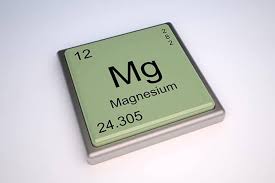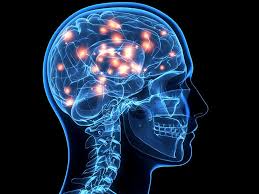section-02280fe
 Source: Lucy Lascelles- Trilogy Nutrition
Source: Lucy Lascelles- Trilogy Nutrition
Magnesium is a co-factor in over 350 enzymatic reactions in the body. It is necessary for the transmission of nerve impulses, muscular activity, heart function, temperature regulation, detoxification reactions, formation of healthy bones and improving insulin sensitivity.
Deficiency symptoms include muscle cramps, weakness, insomnia, loss of appetite, kidney stones, osteoporosis, nervousness, restlessness, irritability, sugar cravings, fatigue and high blood pressure. Chronic deficiencies of magnesium are also implicated in reduced bone mineral density and increased risk of osteoporosis as well as anaemia, depression and irregular heart rate. Virtually every body system can display symptoms because ALL systems throughout the body rely on magnesium. (References 1-12)
section-3845968
Here are 21 important reasons why you why you need a good magnesium supplement in your life:
Magnesium is deficient in the soil from which the food we eat grows.
Chemical fertilisers and modern intensive farming and agricultural trends have stripped increasing amounts of nutrients such as magnesium from our soils.
A commonly asked question is: “Why do I need to take a Magnesium Supplement? Can’t I just get it from food? “
Answer
In an ideal world, you SHOULD be able to get sufficient magnesium from the food you eat, however more than 2 thirds of the American population are deficient in magnesium, causing the World Health Organization placing magnesium depletion on it’s list of concerns. Many other countries such as Finland, Australia and France have similar findings in research, all showing that between 70 to 80% of adults consume less than the recommended daily allowance (RDA) for magnesium.
The same has been found in Australian and Finnish diets.
Green leafy vegetables should be one of the best sources of magnesium; however these days our soils are deficient in the mineral, making our food that grows in the soil depleted too.
Other food sources which should contain magnesium are nuts, seeds and legumes; however phytic acid, oxalic acid as well as enzyme inhibitors in these foods may interfere with the absorption of magnesium, unless specific cooking techniques and preparation are used when preparing foods such as soaking, fermenting or sprouting.
Many research studies have been done over the past 70 years proving that there is now a 14 to 80% reduction in magnesium in certain fruits and vegetables today, compared to those of our great grandparents. (References 13 to 21)
2. Refined foods common in today’s diet are deficient in magnesium.
Techniques used to refine grains found in the breads and pasta from your local supermarket remove up to 97% of magnesium!
People who consume sugar as well as sodas and soft drinks may be deficient in magnesium because sugar uses up magnesium.
For every single molecule of sugar you consume your body requires over 54 times that amount of magnesium to metabolise the sugar. High phosphorous levels in soft drinks actually blocks mineral absorption in the body, leaching magnesium from your bones. (References 22 to 25)
3. Prescription drugs cause magnesium depletion.
Common prescription drugs such as oral contraceptives, statins, diuretics, antibiotics, diuretics, corticosteroids, asthma medications as well as drugs taken for for irregular heart rhythm, depression and anti-psychosis ALL cause magnesium nutrient depletion in the body. (References 26 to 30)
4. Magnesium improves detoxification.
Magnesium is a chelating and detoxifying agent that helps maintain proper liver function. Every day we are exposed to environmental toxins. Magnesium inhibits heavy metals, chemicals, pesticides and other toxins from attaching to tissue. It keeps newly introduced or recently uprooted toxins from organs and tissues suspended for easier elimination. Mg is crucial for the removal of toxic substances and heavy metals such as aluminium and lead.
Glutathione, the body’s most important anti-oxidant also needs magnesium in order to neutralize free-radicals. Another magnesium benefit is it’s alkalizing properties, which starts the movement of toxicity from the tissues and organs into circulation for elimination through excrement. (References 31 to 35)
5. If you exercise, your need magnesium. Athletes have a greater need for a higher intake of magnesium supplementation.
Magnesium is crucial for energy metabolism by the activation of enzymes known as ATPases, which are needed to generate ATP (adenosine triphosphate).
When ATP is broken down, energy is released for all muscle contractions, and when exercising strenuously, this turnover is extremely high, meaning that ATP needs to be synthesized quickly. Thus a shortfall of magnesium can limit energy production, leading to fatigue, lethargy,  reduced power, muscle twitches or cramps.
reduced power, muscle twitches or cramps.
There is emerging evidence that magnesium requirements are significantly elevated in athletes, and that performance might benefit from higher intakes.
Aside from being used up in the production of energy, magnesium might also assist performance by reducing accumulation of lactic acid and reducing the perception of fatigue during strenuous exercise through its action on the nervous system. Magnesium is also lost through sweat, so athletes training hard in hot and humid environments might further increase demands. (References 36 to 38)
6. Maintaining healthy magnesium levels in your body can greatly decrease your risk of developing cancer.
Cancer rates have risen dramatically throughout the past century, and are expected to nearly double within the next few decades.
A study recently published in the American Journal of Clinical Nutrition found that for every 100-milligram (mg) increase in magnesium intake, a person’s risk of developing colorectal cancer drops by about 13 percent. (References 39 to 45)
7. Your heart and lungs needs magnesium to stay healthy.
Magnesium regulates the contractile ability of the heart muscle. It is concentrated 18 times greater in the heart muscle than in the bloodstream. A decreased magnesium level in the heart muscle may predispose a person to coronary spasms. Magnesium also has a relaxing effect on smooth muscle. It may be helpful in relaxing the smooth muscle of the bronchioles (improving asthma) and the arterioles (lowering blood pressure). More importantly, magnesium decreases coagulation and acts as a calcium channel blocker. As such, it helps the heart to pump more effectively. It has been shown that both histamine production and bronchial spasms increase with magnesium. deficiency. (References 46 to 51)
Magnesium is administered in hospitals for acute myocardial tissue necrosis or lack of oxygen to the heart tissue and cardiac arrhythmia. Many educated doctors understand the need for magnesium supplementation such as those sited below:
“I use magnesium for any person that comes in with a cardiovascular complaint.”- Dr. Robert Maki, N.D.
“The most important marker for impending heart disease is a low magnesium to calcium ratio in the cells.” -Andrea Rosanoff, Ph.D.
8. Magnesium can help with Depression.
“A magnesium deficiency magnifies depression and stress. Serotonin, the feel good brain chemical that is boosted artificially by some medications, depends on magnesium for its production and function. A person that is going through a stressful period without sufficient magnesium can set up a deficit that, if not corrected, can linger, causing depression and further health problems.” Carolyn Dean, MD, ND (Other references 52 to 54)
9. Magnesium ranks top of the minerals when it comes to fitness and bodybuilding.
Why?
– Increased Torque. Brilla and Haley from Western Washington University in Bellingham published the results of a 7-week, double-blind study in which magnesium supplemented lifters exerted greater quadriceps force than unsupplemented lifters.

– ATP Production. Without Magnesium the body cannot produce adenosine tri-phosphate (ATP). ATP transports chemical energy within cells for metabolism. ATP is critically important in bodybuilding. (Reference 55)
– Increased Anabolic Hormones. Research has shown that magnesium is pivotal in Lipid (fat) metabolism and therefore the production of testosterone. Studies also show increased growth hormone and IGF-1 levels with optimal magnesium intake. (Reference 55 and 57)
– Necessary for Protein Synthesis. Research has shown a positive correlation between magnesium levels and lean tissue growth rates (protein synthesis). (Reference 56)
10. Magnesium slows down aging.
While natural aging is a healthy process, accelerated aging has been noted to be a feature of magnesium deficiency, especially evident in the context of long space-flight missions where low magnesium levels are associated with cardiovascular aging over 10 times faster than occurs on earth.
Magnesium supplementation has been shown to reverse age-related neuro-endocrine and sleep EEG changes in humans. One of the possible mechanisms behind magnesium deficiency associated aging is that magnesium is needed to stabilize DNA and promotes DNA replication. It is also involved in healing up of the ends of the chromosomes after they are divided in mitosis. (Reference 58 and 59)
11. Magnesium helps you cope with stress.
Highly driven individuals who are under chronic stress are prone to magnesium deficiencies due to the overproduction of adrenaline, which in turn depletes magnesium stores in your body. The more stressed a person becomes the more magnesium is lost from the body. If you are deficient in magnesium your heart rate and sympathetic nervous system will be sent into overdrive, causing you to feel anxious and stressed. Magnesium can act at the blood brain barrier to prevent the entrance of stress hormones into the brain. It helps to calm the central nervous system and could be labelled “The ultimate natural chill pill.” (References 60 to 62)
12. Magnesium helps with fat loss and diabetes.
Magnesium is one of the number one minerals for improving Insulin Sensitivity!
Magnesium deficiency causes insulin resistance, which causes hyperinsulinemia, leading to hypertension, diabetes and hyperlipidemia. (References 63 to 68)
13. Magnesium helps prevent constipation and bowel disease.
Magnesium deficiency slows down bowel movements causing constipation. This could lead to bowel disease, toxicity, lack of nutrient absorption, as well as colitis. The best way to tell if you are getting enough magnesium is the “bowel tolerance test”. You know when you have too much magnesium when your stools become loose. (References 69 to 72)
14.Magnesium supports healthy brain function.
Magnesium is a neuro-protective agent. Magnesium deficiency causes over-excitory brain patterns, which damages the neurons, eventually leading to cell death. In the brain, that is not easy to fix. Studies show that magnesium also protects against neurological deficit after brain injury. (References 73 to 76 and 97 to 99)

15. Magnesium helps prevent feelings of fatigue.
People deficient in magnesium often feel tired, fatigued and run-down because hundreds of enzymatic reactions in the body are being compromised and consequently under-function due to the serious need for the important mineral. (References 77 to 83)
16. Magnesium helps you get a better night’s sleep.
Magnesium has a calming effect on your body’s nervous system and relaxes the muscles, which in turn will help you to fall asleep easier. A deficiency of magnesium is also sometimes responsible for the nervousness that prevents sleep as well as restless legs syndrome. Magnesium may also improve the length and quality of slow wave sleep. It has been labelled “The most powerful relaxation mineral available” by experts such as Dr Mark Hyman. (Other References 84 to 87)
17. Magnesium helps regulate hunger cravings.
The body requires magnesium to absorb and utilize nutrients. Without magnesium the body cannot properly use the fats, proteins and carbohydrates we eat every day. When we aren’t getting what we need from our diet, the body will crave more food in an effort to obtain those vital nutrients.
By activating hundreds of enzymes in the body, magnesium helps you get the most from what you eat, so your body can be satisfied with the amount of food you genuinely need. Magnesium makes dieting easier by supporting the brain’s sensitivity to leptin; which is a hormone that triggers your sense of feeling full. (References 87 to 91)
Do you crave chocolate? Chocolate is rich in magnesium, so strong cravings could indicate a deficiency in this very important mineral. (References 92 and 93)
18. Magnesium improves pre-menstrual symptoms.
Levels of the mineral drop during the second half of a female’s menstrual cycle, suggesting a possible link with many of the symptoms of PMS. If you suffer from PMS symptoms such as irritability, headaches, cramps and bloating, it may be worth trying a reputable magnesium supplement. (References 94 to 96)
19. Magnesium is crucial for GABA production.
Magnesium binds to and activates GABA receptors. GABA is short for gamma aminobutyric acid, which is your most major relaxing neurotransmitter (brain chemical). Normalisation of brain GABA levels leads to a reduction in stress, anxiety, nervousness, depression and an improvement in insomnia resulting in a more restful night’s sleep. (References 100 to 103)
20. Magnesium assists in strong bone formation and maintaining healthy teeth.
Intake of magnesium through diet and supplements has been positively associated with bone density throughout the whole body, according to research published in an American Journal and studies from Finland have shown lower rates of hip fractures when levels of magnesium were raised. Magnesium helps the body metabolise calcium and converts dietary vitamin D to an active form so is extremely important in the prevention of osteoporosis. (References 104 to 109)
21. Magnesium may relieve headaches and migraines.
Low magnesium levels have been found in chronic migraine sufferers. In one study, people who took magnesium reduce the frequency of attacks by 41.6%, compared to 15.8% in those who took placebo. (Additional References 110 to 113)
So by now you’re wondering. . . . Is there anything Magnesium can’t do?
You now know Magnesium is important, but which supplement is best? Not all brands are created equal! Companies who try to cut costs in production often use low elemental formulas or chemical forms that the body cannot adequately absorb. Look for a Magnesium Supplement that is in a chelated form, rather than an oxide.
Agape Chiropractic Clinic carries UberMag PX, which contains 4 different chelates of magnesium, which means you get superior absorption and benefits.
REFERENCES:
(1) S. Johnson. 2001. The multifaceted and widespread pathology of magnesium deficiency. Med Hypotheses 56(2): 163-70
(2) Tong, GM and RK Rude. 2005. Magnesium deficiency in critical illness. J Intensive Care Med 20 (1):3-17. Review.
(3) Wacker, W.E.C. Magnesium and Man. Harvard Univ. Press, Cambridge, MA, 1980.
(4) Aikawa, J.K. Magnesium: Its Biologic Significance. CRC Press, Boca Raton, FL, 1981.
(5) World Health Organization. Calcium and Magnesium in Drinking Water: Public health significance. Geneva: World Health Organization Press; 2009.
(6) Johnson S. The multifaceted and widespread pathology of magnesium deficiency. Med Hypothesis. 2001 Feb;56(2):163-70.
(7) Fox C, Ramsoomair D, Carter C. Magnesium: its proven and potential clinical significance. Southern Medical Journal. 2003;94(12):1195-201.
(8) DiSilvestro R. Handbook of Minerals as Nutritional Supplements. Boca Raton, Florida: CRC Press;
(9) Kimura M. Overview of Magnesium Nutrition. In: International Magnesium Symposium. New Perspectives in Magnesium Research. London: Springer-Verlag; 2007:239-260.
(10) Altura BM. Introduction: importance of Mg in physiology and medicine and the need for ion selective electrodes. Scand J Clin Lab Invest Suppl. 1994;217:5-9.
(11) Dietary Reference Intake for Calcium, Phosphorus, Magnesium, Vitamin D, and Fluoride. Institute of Medicine. Washington, DC: National Academy Press; 1997.
(12) Durlach J. Magnesium in Clinical Practice. London: Libbey; 1988.
(13) Davis D, Epp M, Riordan H. Changes in USDA Food Composition Data for 43 Garden Crops, 1950 to 1999. Journal of the American College of Nutrition. 2004;23(6):669-682.
(14) Nutrient decline in garden crops over past 50 years. University of Texas at Austin. 2004.
(15) Worthington V. Nutritional Quality of Organic Versus Conventional Fruits, Vegetables, and Grains. Journal of Alternative and Complementary Medicine.
(16) Bergner P. The Healing Power of Minerals, Special Nutrients and Trace Elements.
(17) Vegetables without Vitamins. LE Magazine. March 2001
(18) Gruhn, Peter, Francesco Goletti, and Montague Yudelman. Integrated nutrient management, soil fertility, and sustainable agriculture: current issues and future challenges. Intl Food Policy Res Inst, 2000.
(19) Price, A.L., M. Zimmerman, and F.E. Bear. 1947. The magnesium-supplying power of 20 New Jersey soils. Soil Sci. 63:69-78.
(20) Rehm, G.W., and R.C. Sorensen. 1985. Effects of potassium and magnesium applied for corn grown on an irrigated sandy soil. Soil Sci. Soc. Amer. J. 49:1446-1450.
(21) Schulte, E.E., and K.A. Kelling. 1985. Soil calcium to magnesium ratios- should you be concerned? Bulletin G2986. University of Wisconsin Extension Service. Madison, Wisconsin.
(22) Seelig M, Rosanoff A. The Magnesium Factor. New York: Avery; 2003.
(23) Dean C. The Magnesium Miracle. New York: Ballantine Books; 2007.
(24) Weiss GH, Sluss PM, Linke CA. Changes in urinary magnesium, citrate and oxalate levels due to cola consumption. Urology 1992;39:331-3.
(25) Brink E. J., Beynen A. C., Dekker P. R., Beresteijn E.C.H., Meer R. Interaction of calcium and phosphate decreases ileal magnesium solubility and apparent magnesium absorption. The Journal of Nutrition. 1992; 122:580-586
(26) Blum M, Kitai E, Ariel Y, Schnierer M, Bograd H. Oral contraceptive lowers serum magnesium. Harefuah. 1991;121(10):363-4
(27) Sarafidis PA, Georgianos PI, Lasaridis AN. Diuretics in clinical practice. Part II: electrolyte and acid-base disorders complicating diuretic therapy. Expert Opin Drug Saf 2010;9:259-73.
(28) U.S. Food and Drug Administration. Proton Pump Inhibitor Drugs (Ppis): Drug Safety Communication—Low Magnesium Levels Can Be Associated With Long-Term Use. March 2, 2011.
(29)Haley’s, M. O. “Drug & Nutrient Interactions.” American family physician 44 (1991): 1651-1658.
(30) Bieley, Harlan C. “Drug-induced Nutrient Depletion.”
(31) Pouls, Gregory, and Maile Pouls. The Chelation Controversy: How to Safely Detoxify Your Body and Improve Your Health and Well-being. Basic Health Publications, Inc., 2005.
(32) Primes, Leonard, and Thomas Young. “Composition for detoxification.” U.S. Patent No. 4,582,705. 15 Apr. 1986.
(33) Regan, Raymond F., and Yaping Guo. “Magnesium deprivation decreases cellular reduced glutathione and causes oxidative neuronal death in murine cortical cultures.” Brain research 890.1 (2001): 177-183.
(34) Barbagallo, Mario, et al. “Effects of Glutathione on Red Blood Cell Intracellular Magnesium Relation to Glucose Metabolism.” Hypertension 34.1 (1999): 76-82.
(35) Virginia Minnich, M. B. Smith, M. J. Brauner, and Philip W. Majerus. Glutathione biosynthesis in human erythrocytes. Department of Internal Medicine, Washington University School of Medicine, J Clin Invest. 1971 March; 50(3): 507–513.
(36) Lukaski, Henry C. “Magnesium, zinc, and chromium nutrition and athletic performance.” Canadian journal of applied physiology 26.S1 (2001): S13-S22.
(37) Lun, Victor, Kelly Anne Erdman, and Raylene A. Reimer. “Evaluation of nutritional intake in Canadian high-performance athletes.” Clinical Journal of Sport Medicine 19.5 (2009): 405-411.
(38) Lukaskz, H. C. “magnesium deficiency in athletes.” (1995).
(39) Aleksandrowicz, J., Blicharski, J., Dzigowska, A., Lisiewicz, J. Leuko- and oncogenesis in the light of studies on metabolism of magnesium and its turnover in biocenosis. Acta Med. Pol. 1970; 11:289-302. (abstr: Blood 1971; 37:245)
(40) D. Deheinzelin, E.M. Negri1, M.R. Tucci, M.Z. Salem1, V.M. da Cruz1, R.M. Oliveira, I.N. Nishimoto and C. Hoelz. Hypomagnesemia in critically ill cancer patients: a prospective study of predictive factors. Braz J Med Biol Res, December 2000, Volume 33(12) 1443-1448
(41) Durlach J, Bara M, Guiet-Bara A, Collery P. Relationship between magnesium, cancer and carcinogenic or anticancer metals. Anticancer Res. 1986 Nov-Dec;6(6):1353-61.
(42) Anghileri, L.J. Magnesium concentration variations during carcinogenesis. Magnesium Bull. 1979; 1:46-48.
(43) Anghileri, L.J., Coudoux, P., Durlach, J. (Magnesium and cancer: Clinical data.) Magnesium Bull. 1981; 3:11-20.
(44) Castiglioni S, Maier JA. Magnesium and cancer: a dangerous liason. Magnes Res. 2011 Sep;24(3):S92-100. doi: 10.1684/mrh.2011.0285. Review.
(45) Seelig, M.S. Magnesium (and trace substance) deficiencies in the pathogenesis of cancer. Biol. Tr. Elem. Res. 1979; 1:273-297.
(46) J Am Coll Nutr. 2005 Jun;24(3):166-71. Dietary magnesium and C-reactive protein levels. King DE(1), Mainous AG 3rd, Geesey ME, Woolson RF.
(47) American Journal of Cardiology 1990.
(48) Del Gobbo LC, Imamura F, Wu JHY, Otto MCdO, Chiuve SE, Mozaffarian D. Circulating and dietary magnesium and risk of cardiovascular disease: a systematic review and meta-analysis of prospective studies. Am J Clin Nutr 2013;98:160-73.
(49) Champagne CM. Dietary interventions on blood pressure: the Dietary Approaches to Stop Hypertension (DASH) trials. Nutr Rev 2006;64:S53-6.
(50) Chiuve SE, Korngold EC, Januzzi Jr JL, Gantzer ML, Albert CM. Plasma and dietary magnesium and risk of sudden cardiac death in women. Am J Clin Nutr 2011;93:253-60.
(51) Joosten MM, Gansevoort RT, Mukamal KJ, van der Harst P, Geleijnse JM, Feskens EJM, Navis G, Bakker SJL. Urinary and plasma magnesium and risk of ischemic heart disease. Am J Clin Nutr 2013;97:1299-306.
(52) Eby, George A., and Karen L. Eby. “Rapid recovery from major depression using magnesium treatment.” Medical hypotheses 67.2 (2006): 362-370.
(53) Eby, George A., and Karen L. Eby. “Magnesium for treatment-resistant depression: a review and hypothesis.” Medical hypotheses 74.4 (2010): 649-660.
(54) Rasmussen, Henrik Højgaard, Preben Bo Mortensen, and Ivan W. Jensen. “Depression and magnesium deficiency.” The International Journal of Psychiatry in Medicine 19.1 (1990): 57-63.
(55) Fawcett, W. J., E. J. Haxby, and D. A. Male. “Magnesium: physiology and pharmacology.” British Journal of Anaesthesia 83.2 (1999): 302-320.
(56) Caddell, J. L. & Goddard, D. R. (1967).Studies in protein-calorie malnutrition. I. Chemical evidence for magnesium deficiency. New England Journal of Medicine 276, 533-535.
(57) Dørup, Inge, et al. “Role of insulin-like growth factor-1 and growth hormone in growth inhibition induced by magnesium and zinc deficiencies.” British Journal of Nutrition 66.03 (1991): 505-521.
(58) Billard, Jean Marie. “Ageing, hippocampal synaptic activity and magnesium.” Magnesium research 19.3 (2006): 199-215.
(59) Clin Interv Aging. 2012;7:51-4. doi: 10.2147/CIA.S28768. Epub 2012 Feb 16. Correcting magnesium deficiencies may prolong life. Rowe WJ(1).
(60) Sartori, S. B., et al. “Magnesium deficiency induces anxiety and HPA axis dysregulation: modulation by therapeutic drug treatment.” Neuropharmacology 62.1 (2012): 304-312.
(61) Seelig, M. S. (1994). “Consequences of magnesium deficiency on the enhancement of stress reactions; preventive and therapeutic implications (a review).” J Am Coll Nutr 13(5): 429-446.
(62) Seelig, Mildred S. “Consequences of magnesium deficiency on the enhancement of stress reactions; preventive and therapeutic implications (a review).” Journal of the American College of Nutrition 13.5 (1994): 429-446.
(63) Dong JY, Xun P, He K, Qin LQ. Magnesium intake and risk of type 2 diabetes: meta-analysis of prospective cohort studies. Diabetes Care. 2011
(64) Larsson SC, Wolk A. Magnesium intake and risk of type 2 diabetes: a meta-analysis. J Intern Med 2007;262:208-14.
(65) Rodriguez-Moran M, Simental Mendia LE, Zambrano Galvan G, Guerrero-Romero F. The role of magnesium in type 2 diabetes: a brief based-clinical review. Magnes Res 2011;24:156-62.
(66) Evert AB, Boucher JL, Cypress M, Dunbar SA, Franz MJ, Mayer-Davis EJ, Neumiller JJ, Nwankwo R, Verdi CL, Urbanski P, Yancy WS Jr. Nutrition therapy recommendations for the management of adults with diabetes. Diabetes Care 2013;36:3821-42
(67)Diabetes Care, Volume 28, Number 5, May 2005
(68) Singh RB, “Association of low plasma concentrations of antioxidant vitamins, magnesium and zinc with high body fat per cent in Indian men.” Magnes Res, vol. 11, no. 1, pp. 3-10, 1998.
(69) Lennard-Jones, J. E. “Clinical management of constipation.” Pharmacology 47.Suppl. 1 (1993): 216-223.
(70) Kinnunen, O., and J. Salokannel. “Constipation in elderly long-stay patients: its treatment by magnesium hydroxide and bulk-laxative.” Annals of clinical research 19.5 (1986): 321-323.
(71) Sykes, Nigel. “Constipation and diarrhoea.” Management of Advanced Disease (2004): 94.
(72) Galland, L. “Magnesium and inflammatory bowel disease.” Magnesium 7.2 (1987): 78-83.
(73) Fehlinger R. Therapy with magnesium salts in neurological diseases. Magnes Bull. 1990;12:35-42.
(74) Ducroix T. L’enfant spasmophile—Aspects diagnostiques et thérapeutiques. Magnes Bull. 1984;1:9-15.
(75) SeeligM. How best to determine magnesium status; a new laboratory test worth trying. Nutr Intl J Appl & Basic Nutr Sci. 1997;13:376-377.
(76) Magnes Res. 1997 Jun;10(2):143-8. Assessment of magnesium levels in children with attention deficit hyperactivity disorder (ADHD). Kozielec T(1), Starobrat-Hermelin B.
(77) Durlach J: “Magnesium in der klinischen Praxis.” Jena und Stutt-gart: Fischer-Verlag, 1992
(78) Cox, I. M., M. J. Campbell, and D. Dowson. “Red blood cell magnesium and chronic fatigue syndrome.” The Lancet 337.8744 (1991): 757-760.
(79) Lukaski, Henry C. “Vitamin and mineral status: effects on physical performance.” Nutrition 20.7 (2004): 632-644.
(80) Rude RK. Magnesium. In: Coates PM, Betz JM, Blackman MR, Cragg GM, Levine M, Moss J, White JD, eds. Encyclopedia of Dietary Supplements. 2nd ed. New York, NY: Informa Healthcare; 2010:527-37.
(81) Fox C, Ramsoomair D, Carter C. Magnesium: its proven and potential clinical significance. Southern Medical Journal. 2003;94(12):1195-201.
(82) DiSilvestro R. Handbook of Minerals as Nutritional Supplements. Boca Raton, Florida: CRC Press;
(83) Kimura M. Overview of Magnesium Nutrition. In: International Magnesium Symposium. New Perspectives in Magnesium Research. London: Springer-Verlag; 2007:239-260.
(84) Nielsen, Forrest H., LuAnn K. Johnson, and Huawei Zeng. “Magnesium supplementation improves indicators of low magnesium status and inflammatory stress in adults older than 51 years with poor quality sleep*.” Magnesium Research 23.4 (2010): 158-168.
(85) Held K, Antonijevic IA, Künzel H, et al. Oral Mg(2+) supplementation reverses age-related neuroendocrine and sleep EEG changes in humans. Pharmacopsychiatry
(86) Abbasi B, Kimiagar M, Sadeghniiat K, et al. The effect of magnesiumsupplementation on primary insomnia in elderly: A double-blind placebo-controlle clinical trial.
(87) Durlach J, Pagès N, Bac P, Bara M, Guiet-Bara A. Biorhythms and possible central regulation of magnesium status, phototherapy, darkness therapy and chronopathological forms of magnesium depletion. Magnes Res. 2002 Mar;15(1-2):49-66.
(88) Leptin—Its Essential Role in Health, Disease and Aging; Dr. Ron Rosedale
(89) Towards a pro-inflammatory and immunomodulatory emerging role of leptin ; Otero et al; Rheumatology 2006;45:944–950
(90) Ahima, R.S, Prabakaran, D, Mantzoros, C, Qu, D, Lowell, B, Maratos-Flier, E, and Flier, J.S. Role of leptin in the neuroendocrine response to fasting.
(91) Considine, R.V, Sinha, M.K, Heiman, M.L, Kriauciunas, A, Stephens, T.W, Nyce, M.R, Ohannesian, J.P, Marco, C.C, McKee, L.J, Bauer, T.L, and Caro, J.F. Serum immunoreactive-leptin concentrations in normal-weight and obese humans. N. Engl. J. Med. 1996; 334: 292–295
(92) Elin, R. J. “Assessment of magnesium status.” Clinical chemistry 33.11 (1987): 1965-1970.
(93) Hannum, Sandra M., and John W. Erdman Jr. “Emerging health benefits from cocoa and chocolate.” Journal of Medicinal Food 3.2 (2000): 73-75.
(94) Sherwood, R. A., et al. “Magnesium and the premenstrual syndrome.” Annals of Clinical Biochemistry: An international journal of biochemistry in medicine 23.6 (1986): 667-670.
(95) Facchinetti, Fabio, et al. “Oral magnesium successfully relieves premenstrual mood changes.” Obstetrics & Gynecology 78.2 (1991): 177.
(96) Rosenstein, Donald L., et al. “Magnesium measures across the menstrual cycle in premenstrual syndrome.” Biological psychiatry 35.8 (1994): 557-561.
(97) McKee, J. Andrew, et al. “Analysis of the brain bioavailability of peripherally administered magnesium sulfate: A study in humans with acute brain injury undergoing prolonged induced hypermagnesemia.” Crit Care Med 33.3 (2005): 661-666.
(98) Temkin, Nancy R., et al. “Magnesium sulfate for neuroprotection after traumatic brain injury: a randomised controlled trial.” The Lancet Neurology 6.1 (2007): 29-38.
(99) Schouten, Joost W. “Neuroprotection in traumatic brain injury: a complex struggle against the biology of nature.” Current opinion in critical care 13.2 (2007): 134-142.
(100) Durlach, J., et al. “Biorhythms and possible central regulation of magnesium status, phototherapy, darkness therapy and chronopathological forms of magnesium depletion.” Magnesium research: official organ of the International Society for the Development of Research on Magnesium 15.1-2 (2002): 49-66.
(101) Petroff, Ognen AC. “Book Review: GABA and glutamate in the human brain.” The Neuroscientist 8.6 (2002): 562-573.
(102) Chollet, D., et al. Blood and brain magnesium in inbred mice and their correlation with sleep quality. Am J Physiol Regul Integr Comp Physiol. 279(6):R2173-R2178, 2000.
(103) Poleszak, E., et al. Benzodiazepine/GABA(A) receptors are involved in magnesium-induced anxiolytic-like behavior in mice. Pharmacol Rep. 60(4):483-489, 2008.
(104) Avioli, L.V. The calcium controversy and the recommended dietary allowance. In The Osteoporotic Syndrome, Detection, Prevention and Treatment., Ed L.V. Avioli, Publ. Grune & Stratton, Inc, Orlando FL, 1987; pp 57-66.
(105) 202. Seelig, M.S. Increased need for magnesium with the use of combined oestrogen and calcium for osteoporosis treatment. Magnesium Res. 1990; 3:197-215.
(106) Rude RK, Singer FR, Gruber HE. Skeletal and hormonal effects of magnesium deficiency. J Am Coll Nutr 2009;28:131–41
(107)Tucker KL. Osteoporosis prevention and nutrition. Curr Osteoporos Rep 2009;7:111-7.
(108) Mutlu M, Argun M, Kilic E, Saraymen R, Yazar S. Magnesium, zinc and copper status in osteoporotic, osteopenic and normal post-menopausal women. J Int Med Res 2007;35:692-5
(109) Aydin H, Deyneli O, Yavuz D, Gözü H, Mutlu N, Kaygusuz I, Akalin S. Short-term oral magnesium supplementation suppresses bone turnover in postmenopausal osteoporotic women. Biol Trace Elem Res 2010;133:136-43.
(110) Demirkaya S, Vural O, Dora B, Topcuoglu MA. Efficacy of intravenous magnesium sulfate in the treatment of acute migraine attacks. Headache. 2001;41(2):171-177.
(111) Sun-Edelstein C, Mauskop A. Role of magnesium in the pathogenesis and treatment of migraine. Expert Rev Neurother 2009;9:369–79
(112) Schürks M, Diener H-C, Goadsby P. Update on the prophylaxis of migraine. Cur Treat Options Neurol 2008;10:20–9.
(113) Holland S, Silberstein SD, Freitag F, Dodick DW, Argoff C, Ashman E. Evidence-based guideline update: NSAIDs and other complementary treatments for episodic migraine prevention in adults. Neurology 2012;78:1346-53.
ADDITIONAL REFERENCES:
-McCarthy J, Kumar R. Divalent Cation Metabolism: Magnesium. In: Schrier R, series editor. Atlas of Diseases of the Kidney. Volume 1. Wiley-Blackwell; 1999: 4.1-4.12.
-Elin RJ, Rude RK. Oral magnesium and wellness. The Magnesium Report: Clinical, Research and Laboratory News for Cardiologists. 2000
-Liebscher DH, Liebscher DE. About the misdiagnostics of magnesium deficiency. In: Xth International Magnesium Symposium. Cairns (Australia): 2003
-Publizierte Patientendaten: Von Ehrlich B: Magnesiummangelsyn- drom in der internistischen Praxis. Magnes Bulletin 19:29–30, 1997.
-Thomas L: Klinisch relevante Laborwerte. In Harrison: “Innere Medizin,” 13th ed. New York: McGraw-Hill, pp 2915–2920, 1995









